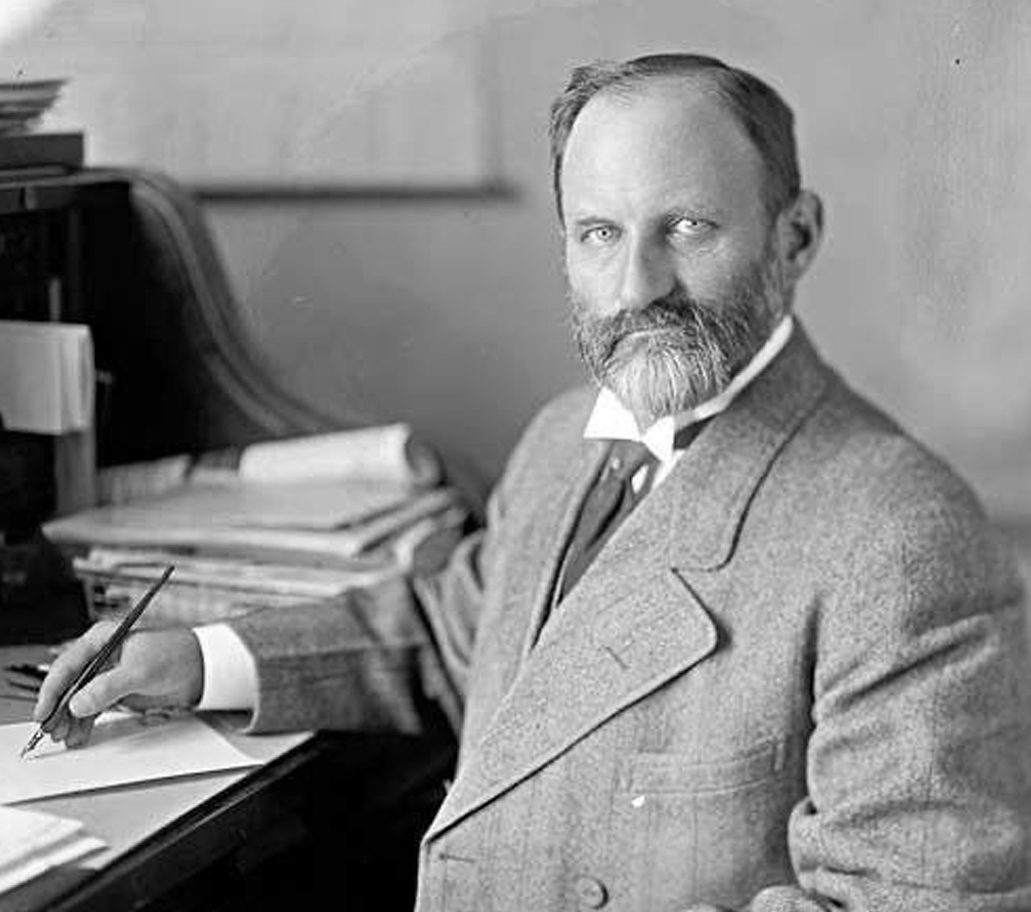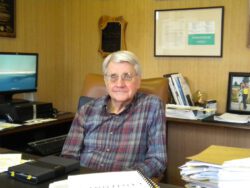By Michael D. Wynne
It’s hard for me to believe that Joseph Ransdell has become so forgotten about here in CenLa. One time friend to U. S. Presidents, a nationally-known politician and business leader, he was the pride of Central Louisiana and helped make CenLa what it is today.
Born on the Ransdell Plantation, “Elmwood,” 6 miles South of Alexandria (not in Alexandria as many references say), Joseph Eugene Ransdell (1858 – 1954) briefly lived there and received his initial home-schooling here as there were no public schools in the mid19th century.
Joseph Ransdell’s parents, John Hickman Ransdell (1811-1869) and Amanda L. Terrell Ransdell (1820-1900), were well-known civil and business leaders here, and are buried in old Rapides Cemetery along with many other Ransdell family members. John
Ransdell was the Editor of the Red River Whig, a pre Civil War newspaper here in Alexandria. I have visited the Ransdell’s graves located at a turn in the road in Old Rapides many times and have often tried to bring attention and preservation efforts to
their grave site, but they have largely been ignored here, even by the books on the cemetery.
In 1882, Joseph graduated from Union College in Schenectady, New York. He returned to Louisiana to read the law with an established firm, and was admitted to the bar in 1883. Joseph practiced from 1883 to 1889 in Lake Providence in East Carroll
Parish. He served as district attorney for the 8th Judicial District of Louisiana for 15 years, from 1884 to 1896. There in Lake Providence he had a plantation where he cultivated cotton and pecan groves. From 1896 to 1899, he served on the Fifth Levee
District Board. In 1898, he was a member of the Louisiana State Constitutional Convention.
In 1899, Ransdell was elected to the 56th Congress to fill a vacancy. He won his first full term in Congress in 1900, having defeated the Republican businessman, Henry E. Hartner, (whose office is now preserved at Southern Forest Heritage Museum) of Urania in La Salle Parish.
Ransdell served in the House from 1899 to 1913. He was not a candidate for renomination in 1912, having instead been elected by the to the U. S. Senate. In 1918, he defeated future U.S. Senator John Holmes Overton of Alexandria in a disputed vote. Ransdell would later win his third term in 1924.
Huey Pierce Long Jr., later becoming an adversary of Ransdell, while himself running for a second term on the Louisiana Railroad Commission, spent more time supporting Ransdell for the Senate than he did on his own campaign in which he would
carry all twenty-eight parishes in his district. Long was particularly motivated to support Ransdell because of his fierce opposition to Shreveport Mayor Thomas who was Ransdell’s opposition, though Long was then a resident of Shreveport.
Ransdell served as a leading U. S. senator from March 4, 1913, to March 3, 1931. But in 1930, then-Governor Huey Long ran in the Democratic primary against Ransdell for the Senate seat and won highhandedly. This campaign was one of Louisiana’s most
famous political campaigns, placing Long, in the guise of the Biblical David, against Ransdell, representing the Biblical Goliath.
With Long often calling Ransdell “Old Feather-Duster Ransdell” during the campaign, Long toppled Randsell. Long would be
elected in the general election without Republican opposition.
T. H. Harris , the famed long-term Louisiana state superintendent of education, called Ransdell “one of the most lovable and distinguished citizens of the United States. [Yet] the people elected Long to the Senate because they believe that he can be of more use to them there … “
One of Ransdell’s greatest accomplishments in the Senate was creating the National Institutes of Health. In later years, Ransdell was a member of the board of supervisors of LSU from 1940 to 1944. Ransdell returned to his home in Lake Providence and is interred there at Lake Providence Cemetery. At the time of his death, he was the last living U. S. Senator to have ever been elected by a state legislature.
A biography of Ransdell entitled “Ransdell of Louisiana,” was written in 1951 by the late Adras LaBorde, long-time managing editor of the Alexandria Daily Town Talk. This writer visited with Adras at his old home on Texas Avenue on July 18, 1991 to talk about Ransdell and have my copy of his book signed. Adras told me, among many other fascinating things, that Ransdell relished the fact that he well outlived Huey Long by almost 2 decades as Huey had destroyed Ransdell’s monumental political career. Ransdell should not be forgotten today in CenLa or in the nation.













